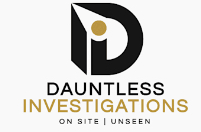There are plenty of reasons why you should hire a private investigator instead of trying to get answers yourself. For example, what exactly is the difference between stalking someone and hiring a private investigator to conduct an investigation?
Defining Stalking
Stalking is a form of harassment involving repeated and unwanted attention, contact, or any other behavior that causes a person to feel fear or distress. It can manifest in various ways, including:
- Following the victim: This can be physical, such as following someone, or virtual, such as tracking someone’s online activities.
- Unwanted communication: This includes repeated phone calls, text messages, emails, or social media contact.
- Unsolicited gifts: Sending unwanted items or gifts.
- Threatening behavior: This can be explicit threats or subtle actions that imply harm or intimidation.
Stalking is a criminal offense in many jurisdictions because it invades personal privacy and often leads to emotional and psychological trauma for the victim. Consequently, one of the key takeaways here is that stalking violates the victims personal privacy and causes them to feel fear or distress in real time. As in, the person is aware they are being followed and the person following them is refusing to leave them alone. Once though the victim is aware of the stalkers presence, you’re crossing into stalking territory.
Role of a Private Investigator
Private investigators (PIs) are professionals hired to gather information and conduct surveillance for legitimate purposes. Their activities are bound by legal and ethical guidelines designed to protect the privacy and rights of individuals, and are controlled by continuous education requirements and training throughout the year. Key aspects of a PI’s role include:
- Legal compliance: PIs must operate within the framework of the law, ensuring their methods do not infringe on anyone’s legal rights. This includes obtaining necessary permissions for certain types of surveillance and avoiding actions that constitute harassment.
- Client-driven objectives: PIs are hired to fulfill specific, lawful objectives, such as uncovering evidence for legal cases, locating missing persons, conducting background checks, or uncovering fraudulent activities.
- Ethical standards: Reputable PIs adhere to strict ethical standards, ensuring their actions are justified, necessary, and respectful of privacy.
Key Differences Between Stalking and PI Surveillance
- Intent and Purpose:
- Stalking: The intent behind stalking is often malicious, frequently with a desire to control or intimidate the victim.
- PI Surveillance: The purpose is to gather information for legitimate reasons, such as legal investigations or protecting a client’s interests.
- Consent and Authorization:
- Stalking: The victim has not given consent, and the stalker acts without any legal authorization.
- PI Surveillance: PIs are hired by clients and conduct their work within the bounds of legal contracts and permissions.
- Legal Boundaries:
- Stalking: It is illegal and punishable under criminal laws.
- PI Surveillance: It is a lawful profession regulated by legal and ethical standards, provided the PI adheres to the law.
- Behavior and Methods:
- Stalking: Often involves intrusive, threatening, and repetitive behaviors aimed at intimidating or controlling the victim.
- PI Surveillance: Involves discrete and non-intrusive methods aimed at observing and documenting for lawful purposes.
Ensuring Ethical PI Practices
To distinguish their work clearly from stalking, private investigators must:
- Follow the law: Stay informed about local, state, and federal laws governing surveillance and privacy.
- Maintain professionalism: Conduct investigations discreetly and respectfully.
- Prioritize ethics: Uphold high ethical standards, avoiding any actions that could harm or unduly distress individuals.
In Conclusion
Understanding the difference between stalking and the legitimate work of a private investigator is essential for protecting individual rights. While stalking is a criminal act that infringes on personal privacy and safety, private investigators perform legal and ethical services. After all, if private investigations were illegal and so is stalking, how can you possibly hope to support your case in court? Or defend yourself from others who may be looking to take advantage of you for their own gain? Without a legal means to confirm and obtain information, any legal action taken against you or anyone else would almost inevitably devolve into a “he-said/she-said” type of argument with no real way for either side to advance their cause. Private investigators offer a solution to entities and individuals looking to protect themselves legally while also ensuring they don’t accidentally get themselves in more trouble legally.
This blog aims to educate the public and clients on the crucial distinctions between illegal stalking and professional surveillance by private investigators. By highlighting these differences, we hope to foster a better understanding and trust in the services provided by private investigators.
